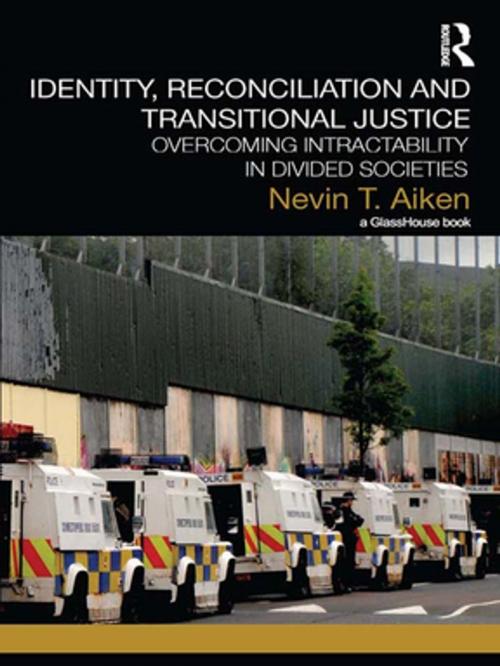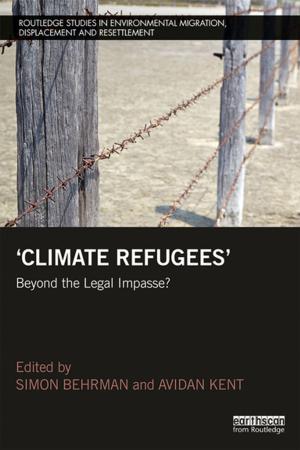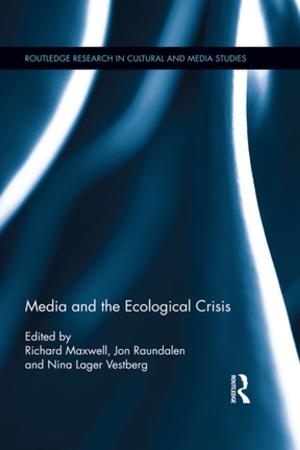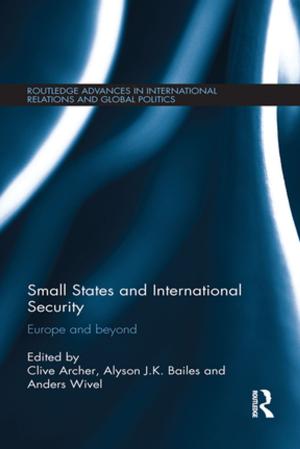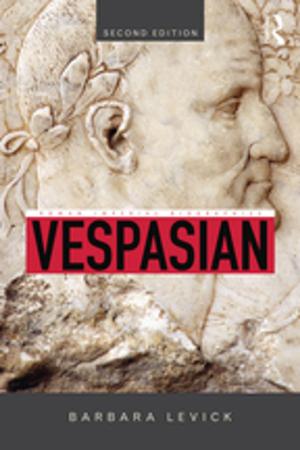Identity, Reconciliation and Transitional Justice
Overcoming Intractability in Divided Societies
Nonfiction, Reference & Language, Law, Comparative, Criminal law| Author: | Nevin T. Aiken | ISBN: | 9781135086671 |
| Publisher: | Taylor and Francis | Publication: | April 15, 2013 |
| Imprint: | Routledge | Language: | English |
| Author: | Nevin T. Aiken |
| ISBN: | 9781135086671 |
| Publisher: | Taylor and Francis |
| Publication: | April 15, 2013 |
| Imprint: | Routledge |
| Language: | English |
Building upon an interdisciplinary synthesis of recent literature from the fields of transitional justice and conflict transformation, this book introduces a groundbreaking theoretical framework that highlights the critical importance of identity in the relationship between transitional justice and reconciliation in deeply divided societies. Using this framework, Aiken argues that transitional justice interventions will be successful in promoting reconciliation and sustainable peace to the extent that they can help to catalyze those crucial processes of ‘social learning’ needed to transform the antagonistic relationships and identifications that divide post-conflict societies even after the signing of formal peace agreements. Combining original field research and an extensive series of expert interviews, Aiken applies this social learning model in a comprehensive examination of both the South African Truth and Reconciliation Commission and the uniquely ‘decentralized’ approach to transitional justice that has emerged in Northern Ireland. By offering new insight into the experiences of these countries, Aiken provides compelling firsthand evidence to suggest that transitional justice interventions can best contribute to post-conflict reconciliation if they not only provide truth and justice for past human rights abuses, but also help to promote contact, dialogue and the amelioration of structural and material inequalities between former antagonists.
Identity, Reconciliation and Transitional Justice makes a timely contribution to debates about how to best understand and address past human rights violations in post-conflict societies, and it offers a valuable resource to students, scholars, practitioners and policymakers dealing with these difficult issues.
Building upon an interdisciplinary synthesis of recent literature from the fields of transitional justice and conflict transformation, this book introduces a groundbreaking theoretical framework that highlights the critical importance of identity in the relationship between transitional justice and reconciliation in deeply divided societies. Using this framework, Aiken argues that transitional justice interventions will be successful in promoting reconciliation and sustainable peace to the extent that they can help to catalyze those crucial processes of ‘social learning’ needed to transform the antagonistic relationships and identifications that divide post-conflict societies even after the signing of formal peace agreements. Combining original field research and an extensive series of expert interviews, Aiken applies this social learning model in a comprehensive examination of both the South African Truth and Reconciliation Commission and the uniquely ‘decentralized’ approach to transitional justice that has emerged in Northern Ireland. By offering new insight into the experiences of these countries, Aiken provides compelling firsthand evidence to suggest that transitional justice interventions can best contribute to post-conflict reconciliation if they not only provide truth and justice for past human rights abuses, but also help to promote contact, dialogue and the amelioration of structural and material inequalities between former antagonists.
Identity, Reconciliation and Transitional Justice makes a timely contribution to debates about how to best understand and address past human rights violations in post-conflict societies, and it offers a valuable resource to students, scholars, practitioners and policymakers dealing with these difficult issues.
